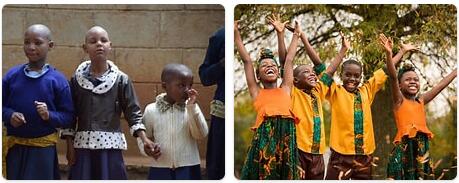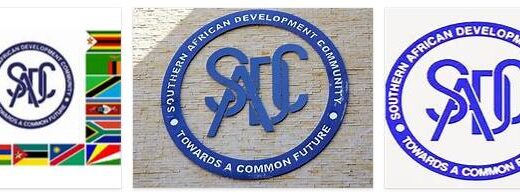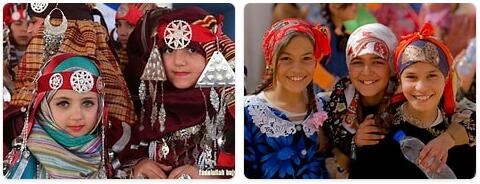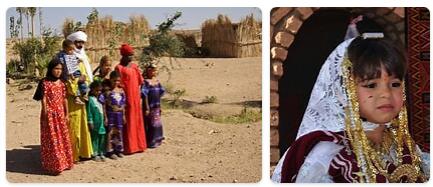South Africa 2014
Yearbook 2014
South Africa. At the beginning of the year, some 70,000 miners went on strike with demands for higher wages, and the work was paralyzed at the platinum mines, where more than one-sixth of the country’s GDP is produced. Violence erupted between workers and the police, and the strike lasted for five months, leading to billion losses for the mining industry. In June, agreements for raising the lowest wages were concluded by about 10% per year for three years.
Then followed a metal worker strike, when over 220,000 workers stopped, among other things. parts of the country’s extensive car production. The strike became very costly for the industry, and after four weeks an agreement similar to the miners was concluded.
South Africa population in 2020 is estimated at 59,308,701. The country’s economic gaps seemed to widen. White households earned an average of six times as much as blacks. Unemployment of about 25%, lack of electricity, water and good roads led to protests in the suburbs of Johannesburg, where young people plundered and vandalized. Media compared the turmoil to the chaos of the end of the apartheid era. The police faced the lawlessness with violence, and several people were shot dead.

Ombudsman Thuli Madonsela reported in March that President Jacob Zuma used large sums of state funds to renovate his luxury private estate in Nkandla, KwaZulu-Natal. The Ombudsman pointed to illegality and asked the President to reimburse part of the costs. The report sparked widespread debate, with government delays, harsh criticism from the opposition and demands for Zuma’s departure. Many believed that growing corruption was stifling the ANC’s soul.
On the 20th anniversary of Democratic South Africa, Nobel Peace Prize laureate Desmond Tutu declared in April that the Zuma government had betrayed the legacy of the departed compatriot Nelson Mandela. The dissatisfaction with the ANC made the parliamentary elections in May the worst of the party so far. Nevertheless, the ANC received just over 62% of the vote, while the Democratic Alliance (DA) in opposition rose strongly to just over 22%. The Left Party Economic Freedom Fighters (EFF) received just over 6% of the vote. The EFF was led by Julius Malema, who was excluded from the ANC after harsh criticism of Zuma. Malema gave voice to the growing dissatisfaction with the ANC and the anger over the corruption within the party. The ANC tried to meet the harsh criticism with promises of investment for millions of jobs and tougher rules against public corruption.
The ANC majority in the newly elected parliament appointed Jacob Zuma as president for a second five-year term, despite the opposition’s protests because of the Ombudsman’s report. But Zuma refused to reimburse any costs to the state, and instead the government asked the Supreme Court to evaluate the report. In the formation of the government after the election, the former union leader was appointed and then well-ordered entrepreneur Cyril Ramaphosa was appointed vice president. For the first time, a black finance minister, Nhlanhla Nene, was appointed.
Supporters of the ANC’s old rival Inkatha went rioting and looting in the Alexandra township of Johannesburg, after the party returned to the election. Police dispelled the participants, and military were ordered to monitor the area. Many people were arrested.
In August, President Zuma was met with harsh words from the opposition when he was to answer questions in Parliament about “Nkandlagate”. Among others, Julius Malema of the EFF shouted that Zuma must pay back to the state. The President was unable to control the elected officials, and the police had to be called to restore order.
The ANC-allied trade union movement COSATO (Congress of South African Trade Unions) excluded during the year the metal union Numsa (The National Union of Metalworkers of South Africa), which criticized President Zuma’s policy and did not run an election campaign for the ANC.
The trial of sprinter star Oscar Pistorius received a lot of attention. Pistorius was charged with murdering his girlfriend but claimed he believed he had shot at a burglar. He was acquitted of murder, a rash that sparked protests. Pistorius was sentenced to five years in prison instead of being sentenced to death.
During the year, South Africa signed an agreement with the Russian Federation on the construction of eight new nuclear power plants – two of which are already in use. The task sparked debate, not least when it became clear that President Zuma had personally negotiated an agreement with President Vladimir Putin.
According to topb2bwebsites, an alarming increase in the poaching of rhino during the year was reported. South Africa has about four-fifths of the world’s rhinos, and the animals are threatened by growing demand for rhinos for medical reasons, mainly from Asia. In July, a South African was sentenced to 77 years in prison for poaching on rhino after killing three animals in Kruger National Park.
October
Confrontation between whites and blacks after murder of white foreman
October 16
Two black suspects appear before the court in Senekal, south of Johannesburg. They are accused of murdering a white 22-year-old foreman on a farm in the area. A confrontation arises between whites and blacks gathered outside the courthouse. The police presence is high, a few days earlier white men stormed the court in an attempt to access the two murder suspects. The man who led the riot was arrested. South Africa still bears deep traces of the apartheid policy that was pursued for more than 40 years when black citizens did not enjoy full rights (see Modern history). Both the president and the police minister have tried to tone down the racist rhetoric that characterizes the debate following the murder of the 22-year-old. A prayer meeting for peace has been held in Senekal where whites and blacks participated together.
The first corruption verdict against VBS’s bank manager
October 8
The court sentences one of the top executives of the former bank VBS to seven years in prison for corruption, money laundering and fraud. The accused has pleaded guilty to the crime and initiated a collaboration with the prosecutor. The looting of VBS includes the equivalent of 134 million US dollars. VBS was a regional member-owned bank that primarily targeted small savers and rural municipalities. Another seven high-ranking officials within the bank are awaiting trial and the prosecutor has announced that more will be prosecuted.
The state leases land to the landless
5 October
The government is giving away 700,000 hectares of underutilized or unused state land to 30-year leases for the landless. The program is part of the national land reform. The leases will primarily go to women, young people and people with disabilities. Only persons who will engage in active agriculture can be considered for a contract. The white minority still owns the largest share of the country’s agricultural land and the skewed land distribution is a historical remnant of the country’s apartheid policy (see Agriculture).


